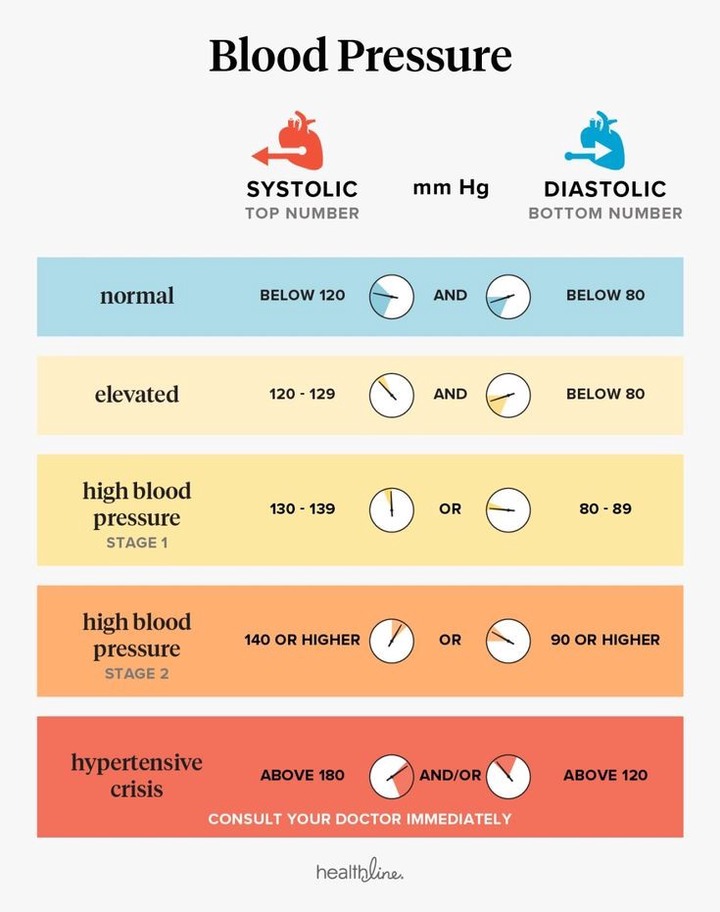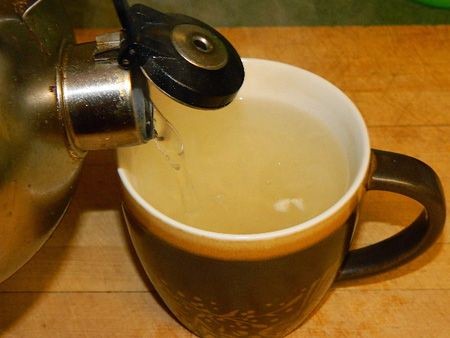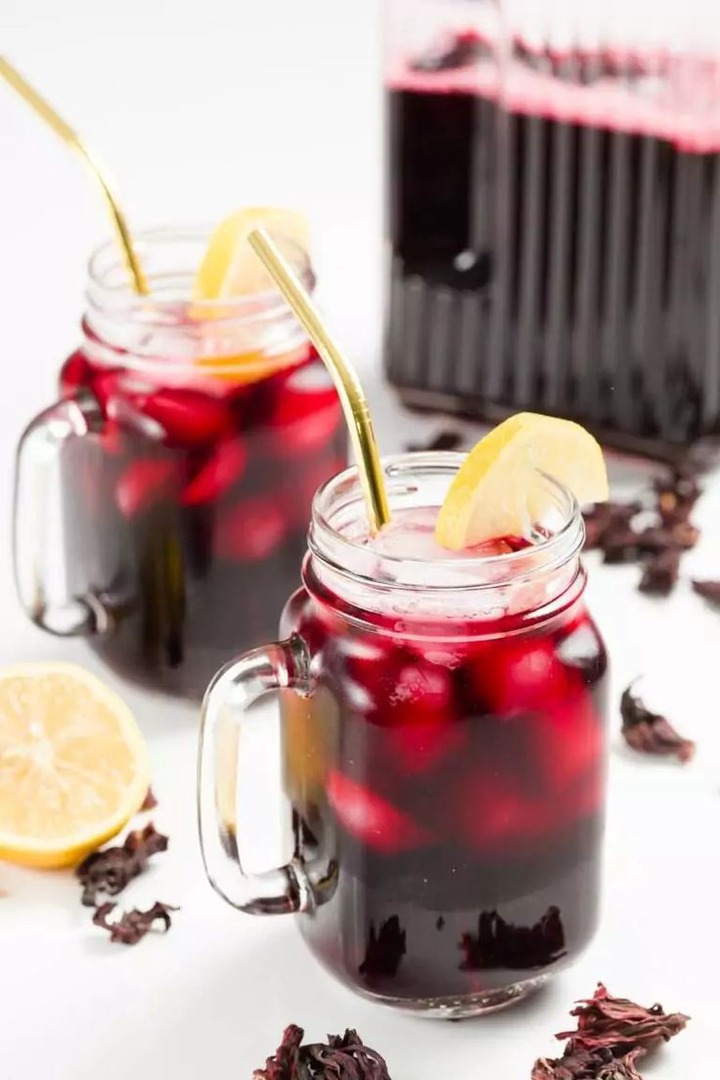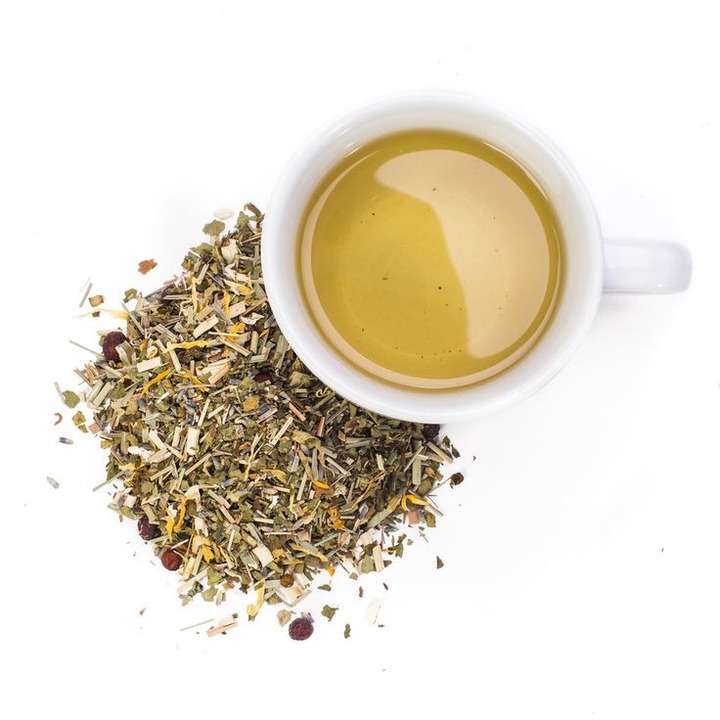6 Herbal Teas That Can Help Lower Your Blood Pressure
[ad_1]
Blood pressure readings are a measure of the force that blood exerts on the walls of your arteries. When your blood pressure is measured, two numbers are usually generally, with the first number known as the systolic blood pressure (the top number) and the second number, being your diastolic blood pressure (the bottom number). When these readings become too high, you are said to have high blood pressure or hypertension.
Photo credit: Pinterest.
This would mean a systolic blood pressure reading that is over 130 mm Hg, diastolic blood pressure (the bottom number) that is over 80 mm Hg, or both systolic and diastolic values above these levels. Managing high blood pressure very well is crucial to preventing some of its possible complications such as kidney disease and heart disease. Some of the proven ways used in managing it include certain medications and dietary and lifestyle changes.
Herbal teas represent one of the healthiest dietary changes one could make, especially when one considers how certain herbal teas have been proven to help reduce blood pressure and lower the risk of heart disease. Adding herbal teas to your dietary plans can help make a huge difference in helping you maintain a healthy range of blood pressure. Six (6) examples of such herbal are examined below:
1. Celery tea
Celery is an incredibly healthy and nutritious spice whose recognition as a medicinal herb dates back many centuries. It is considered a versatile spice that is packed with many important nutrients, including iron, magnesium, manganese, calcium, and fibre. According to a publication by Healthline, celery tea can help lower blood pressure thanks to some of the nutrients it contains.
This blood pressure-lowering effect is linked to certain compounds in celery that may help lower blood pressure by acting as a natural calcium channel blocker. What’s more, celery seed is also rich in dietary fibre and blending it to make a herbal tea can help lower your blood pressure significantly.
2. Garlic tea
According to a publication by Healthline, garlic is rich in many body-benefiting nutrients, including compounds that may benefit your heart. Particularly, garlic contains certain sulfur compounds, including allicin, which helps increase blood flow and relax the blood vessels. These two actions of allicin are known to collectively help lower blood pressure.
Studies have shown that taking garlic tea regularly by people with high blood pressure can lead to a reduction in systolic and diastolic blood pressure by an average of 8.3 mm Hg and 5.5 mm Hg, respectively. This reduction is considered to be similar to that of some blood pressure medications.
3. Cinnamon tea
Cinnamon is an aromatic spice that originates from the inner bark of trees from the Cinnamomum genus, and its tea is yet another herbal tea that you can take to lower your blood pressure. According to Healthline, while scientists are yet to fully understand how cinnamon lowers blood pressure, some studies have shown that it can help dilate and relax the blood vessels, which in turn, can help lower blood pressure significantly.
What’s more, some evidence suggests that taking cinnamon tea regularly can help reduce systolic and diastolic blood pressure by an average of 6.2 mm Hg and 3.9 mm Hg, respectively. Studies have also shown that these effects are even more profound when cinnamon tea is consumed consistently over 12 weeks. This then proves that cinnamon tea can be a great herbal tea for those with high blood pressure or hypertension.
4. Ginger tea
For centuries, ginger has been well-known and valued for its use in alternative medicine. It has been used to improve many aspects of heart health, including circulation, cholesterol levels, and blood pressure. In fact, both human and animal studies have shown that taking ginger, in any form, can help reduce blood pressure in several ways, thanks to its ability to act as a natural calcium channel blocker and natural ACE inhibitor.
According to Healthline, calcium channel blockers and ACE inhibitors are both types of blood pressure medication. Taking ginger tea has even been found to help lower the risk of developing high blood pressure in people who don’t already have hypertension. This, then makes ginger tea an incredibly healthy drink for those with high blood pressure and those whose blood pressure is within the normal range.
5. Hibiscus tea (Zobo)
According to a publication by Healthline, one of the most impressive and well-known benefits of hibiscus tea, also known as “Zobo” in this part of the world, is that it may help lower your blood pressure. Over time, high blood pressure can place extra strain on your heart and cause it to weaken, which can significantly increase your risk of heart disease. However, hibiscus tea can help mitigate this by lowering both your systolic and diastolic blood pressure.
A study of 65 people with high blood pressure, who were given hibiscus tea revealed that after six weeks, there was a significant reduction in systolic blood pressure of such people. Some studies also revealed that hibiscus tea intake can help reduce both systolic and diastolic blood pressure by an average of 7.58 mmHg and 3.53 mmHg, respectively. However, you may need to avoid hibiscus tea if you are taking hydrochlorothiazide, a type of diuretic used to treat high blood pressure, as it may interact with the drug.
6. Lemongrass tea
One of the best ways to enjoy the fresh, lemony aroma and citrus flavour of lemongrass is by making it a tea. Lemongrass tea has been particularly used as a folk remedy to promote sleep, relieve pain, and boost immunity. Apart from those, its intake has also been linked to reduced blood pressure, which, in turn, helps lower the risk of heart disease.
According to a publication by Healthline, drinking lemongrass tea has been found to help facilitate a moderate drop in systolic blood pressure and a mild increase in diastolic blood pressure. In addition to that, lemongrass tea can also help significantly lower your heart rate, which can help reduce your blood pressure considerably. However, men with heart problems should use lemongrass in moderation to avoid dangerous drops in heart rate or increased diastolic pressure.
Content created and supplied by: Jakeson (via Opera
News )
Opera News is a free to use platform and the views and opinions expressed herein are solely those of the author and do not represent, reflect or express the views of Opera News. Any/all written content and images displayed are provided by the blogger/author, appear herein as submitted by the blogger/author and are unedited by Opera News. Opera News does not consent to nor does it condone the posting of any content that violates the rights (including the copyrights) of any third party, nor content that may malign, inter alia, any religion, ethnic group, organization, gender, company, or individual. Opera News furthermore does not condone the use of our platform for the purposes encouraging/endorsing hate speech, violation of human rights and/or utterances of a defamatory nature. If the content contained herein violates any of your rights, including those of copyright, and/or violates any the above mentioned factors, you are requested to immediately notify us using via the following email address operanews-external(at)opera.com and/or report the article using the available reporting functionality built into our Platform
See More
[ad_2]

